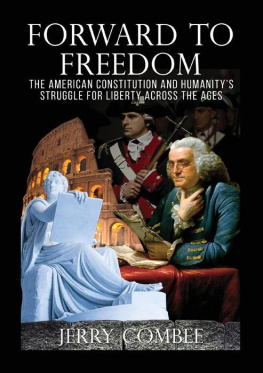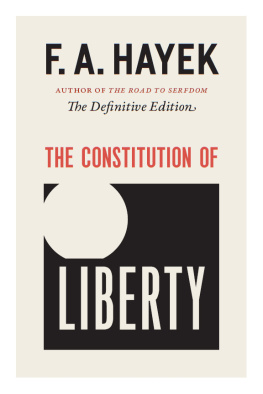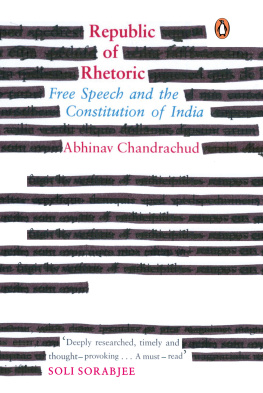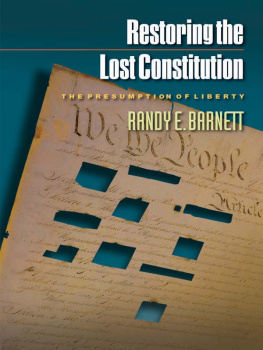Rohan J. Alva - Liberty After Freedom: A History of Article 21, Due Process and the Constitution of India
Here you can read online Rohan J. Alva - Liberty After Freedom: A History of Article 21, Due Process and the Constitution of India full text of the book (entire story) in english for free. Download pdf and epub, get meaning, cover and reviews about this ebook. year: 2021, publisher: HarperCollins India, genre: Politics. Description of the work, (preface) as well as reviews are available. Best literature library LitArk.com created for fans of good reading and offers a wide selection of genres:
Romance novel
Science fiction
Adventure
Detective
Science
History
Home and family
Prose
Art
Politics
Computer
Non-fiction
Religion
Business
Children
Humor
Choose a favorite category and find really read worthwhile books. Enjoy immersion in the world of imagination, feel the emotions of the characters or learn something new for yourself, make an fascinating discovery.

- Book:Liberty After Freedom: A History of Article 21, Due Process and the Constitution of India
- Author:
- Publisher:HarperCollins India
- Genre:
- Year:2021
- Rating:4 / 5
- Favourites:Add to favourites
- Your mark:
- 80
- 1
- 2
- 3
- 4
- 5
Liberty After Freedom: A History of Article 21, Due Process and the Constitution of India: summary, description and annotation
We offer to read an annotation, description, summary or preface (depends on what the author of the book "Liberty After Freedom: A History of Article 21, Due Process and the Constitution of India" wrote himself). If you haven't found the necessary information about the book — write in the comments, we will try to find it.
Rohan J. Alva: author's other books
Who wrote Liberty After Freedom: A History of Article 21, Due Process and the Constitution of India? Find out the surname, the name of the author of the book and a list of all author's works by series.
Liberty After Freedom: A History of Article 21, Due Process and the Constitution of India — read online for free the complete book (whole text) full work
Below is the text of the book, divided by pages. System saving the place of the last page read, allows you to conveniently read the book "Liberty After Freedom: A History of Article 21, Due Process and the Constitution of India" online for free, without having to search again every time where you left off. Put a bookmark, and you can go to the page where you finished reading at any time.
Font size:
Interval:
Bookmark:
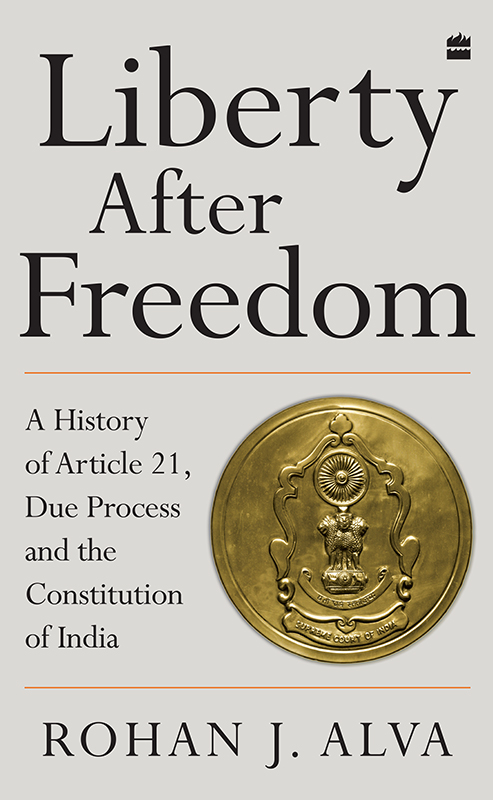

For
Nina, Zarina, and Cyrus
Contents
Article 21
No person shall be deprived of his life or personal liberty except according to procedure established by law.

S oaring high into the New Delhi skyline is the grand dome of the Supreme Court of India, which in popular culture has come to be recognized as the defining image of the highest court of the land. Beneath it lies Court Room No. 1, an expansive and tastefully decorated court room which by tradition is occupied by the Chief Justice of India.
On a warm summer day on 19 July 2017, nine justices led by the Chief Justice of India assembled in Court Room No. 1 to hear a case which would forever reshape the landscape of fundamental rights in India. The question the justices were invited to answer was whether the Constitution of India guaranteed to the people a fundamental right to privacy.
For the Constitution Bench, by no means did this case present any easy answers or self-evident truths.
This decision broke new ground in constitutionalism and served as a high-water mark in the wholesome realization of fundamental rights. It rested on the idea that Article 21 recognizes due process, which allows for individuals to exercise a range of rights to protect their life and liberty. In the process of achieving that constitutional vision, the Supreme Court has over the last fifty years read into Article 21 such rights which are necessary for living a decent life even though they might not be present as categorical rights in the Constitution.
It is well known that within the language of Article 21, the Supreme Court has found a home for over thirty fundamental rights, applying to various sections of the populationfrom those who live behind prison walls to those who toil to earn a living in the most trying circumstances. After all, the Indian Constitution says nothing about the fundamental right to privacy, but because these rights are considered absolutely essential for individuals to realize their full worth, they have been read into Article 21.
With the Supreme Court deciding that the fundamental right to life and personal liberty guarantees to all persons a right to privacy, Article 21 of the Constitution was catapulted into public consciousness as one of the most important fundamental rights which the Indian Constitution guarantees.
The fact that the recognition of the fundamental right to privacy was of prime importance and would have an enormous impact on the future of constitutional rights in India was something that the Supreme Court had acknowledged.
Nearly a year after announcing that the Indian Constitution protected privacy rights, the Supreme Court turned its attention to another equally important and pressing issue. In July 2018, a Constitution Bench of five justices, led by the Chief Justice of India, decided to comprehensively resolve whether the Indian Constitution recognized the rights of those in same-sex relations.
The resolution of this question posed some difficulties, given that not too long ago, the Supreme Court had ruled that Section 377 was perfectly constitutional.
Invoking the high value of the fundamental right to life and personal liberty, dignity, human rights as well as the newly recognized fundamental right to privacy, the Supreme Court ruled that it is the function of the Constitution to protect and preserve the zone of intimate relations which individuals seek to enter with another. What animated the decision was the central idea that all persons, regardless of their gender and sexual orientation, are equal members of society and entitled to the same set of rights. No law could permit the relegation of persons to the margins based on their sexual identity. In declaring so, the Supreme Court overruled its past precedent, which had validated Section 377, and because of Article 21 and due process, it was able to probe more rigorously and declare the constitutional invalidity of laws such as Section 377, which grated against all notions of constitutional morality. Article 21 had prevailed yet again. The decision to decriminalize homosexuality was path-breaking and welcomed with much public joy and jubilation.
To say today that Article 21 is one of the most precious fundamental rights and that due process rights are guaranteed to the people of India would be to state a truism.
In a Constitution which prides itself as being one of the longest in the world, Article 21 is one of its shortest articles. Nonetheless, what it lacks in length, it has more than made up for it in terms of constitutional impact. Given that due process is now a central feature in any discourse on rights in India, it is critical to take stock of its genesis and to remind ourselves of how fractured and divisive the origins of Article 21 truly were. Despite being an extraordinarily powerful right today, it was not always meant to be this way and its pithy wording betrays its fraught history.
The Importance of Due Process
The Constitution of India came to life on 26 January 1950. The nations founding document was multi-layered and minutely detailed, for it had to provide free India a new form of government, apportion powers between the Centre and the states and provide details for the working of matters which a country as varied and as large as India needed.
The supreme responsibility of giving India her Constitution was vested in the Constituent Assembly, which began its deliberations in December 1946. When the constitution making process was in its formative stage, the Assembly had decided that the new Constitution must dedicate itself to enumerating a charter of fundamental rights for free India. This vision translated itself into Part III of the Constitution which contains numerous fundamental rights, creating for individuals a zone of freedom, free from governmental intrusion. In Part III, the fundamental right to life and personal liberty would be enumerated in Article 21.
The due process guarantee essentially secures for the people an entitlement to a range of rights which ideally ought not to be taken away by law. And if at all there is a compelling reason for doing so, then the restriction must be the most minimal. During the Constituent Assemblys deliberations, many members believed that the nations future constitution must incorporate a fundamental right which guarantees the preservation of life, liberty and property and shields it from forms of deprivation which are inconsistent with the principles of due process. There were several reasons which animated this demand.
For some, the due process guarantee, which found mention in the American Constitution, was worthy of emulation since it was necessary to ward off governmental overreach which invaded a persons freedom without justification and in the most disproportionate manner. For others, the due process guarantee was a necessary fundamental right since it had been accepted the world over, albeit in varying forms. Many also viewed the due process guarantee as representing a new age of judicial review in which state action and particularly the law-making power of the state would not go unquestioned, and that in free India, through the medium of the due process guarantee, any person could interrogate the correctness of state action. To hold the government accountable was a major reason which animated the demand for a due process guarantee in the Indian Constitution.
Font size:
Interval:
Bookmark:
Similar books «Liberty After Freedom: A History of Article 21, Due Process and the Constitution of India»
Look at similar books to Liberty After Freedom: A History of Article 21, Due Process and the Constitution of India. We have selected literature similar in name and meaning in the hope of providing readers with more options to find new, interesting, not yet read works.
Discussion, reviews of the book Liberty After Freedom: A History of Article 21, Due Process and the Constitution of India and just readers' own opinions. Leave your comments, write what you think about the work, its meaning or the main characters. Specify what exactly you liked and what you didn't like, and why you think so.




